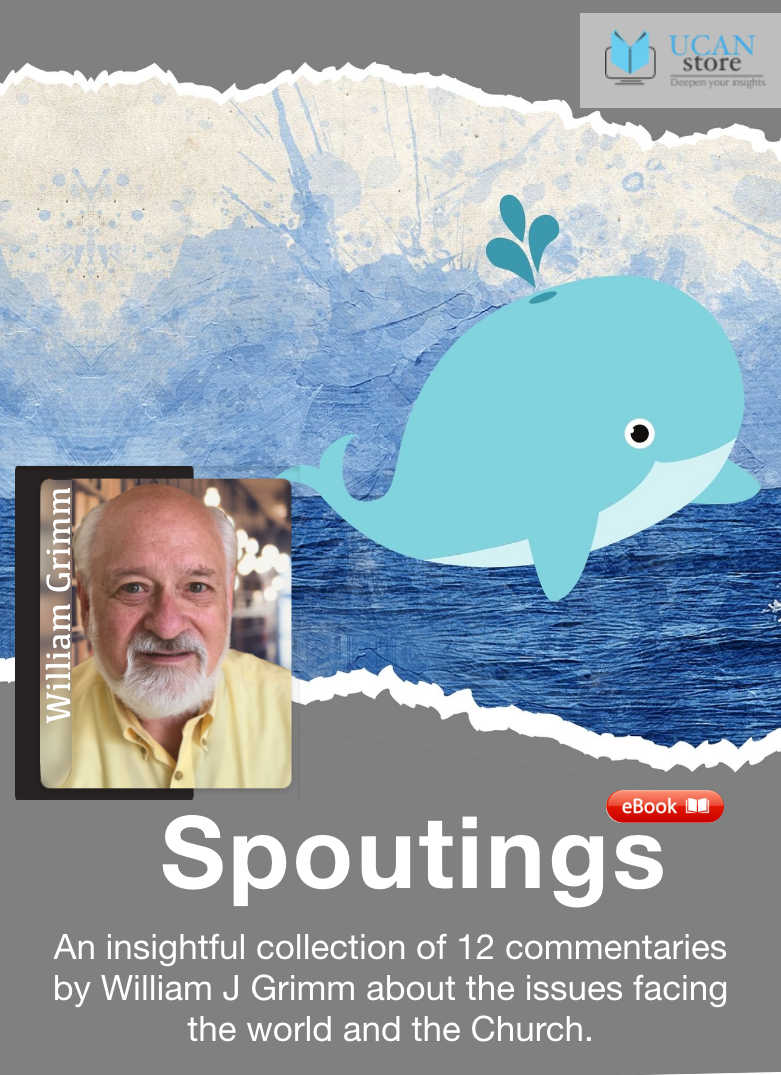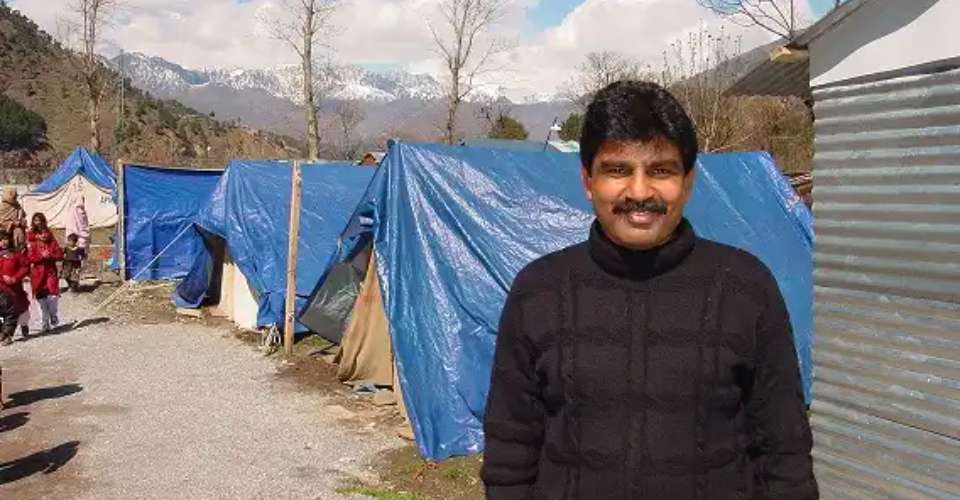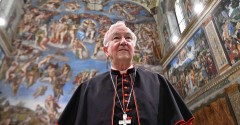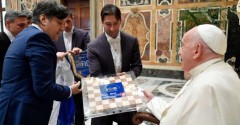
NEWSLETTERS
What’s happening in Asian Church
and what does it mean for the
rest of the world?
Updated: April 02, 2024 06:34 AM GMT

Shahbaz Bhatti on an aid mission in Pakistan (Photo: UCAN files)
I remember March 2, 2011, as if it were yesterday. The news which for years I had mentally prepared for but prayed never to receive was being communicated through all these media channels.
My dear friend Shahbaz Bhatti had been assassinated in Pakistan, in broad daylight, on his way to work. Ever since, I have commemorated March 2 faithfully, with prayers, op-ed articles, and social media posts.
Whenever I am in Rome, I make a point to visit the Basilica di San Bartolomeo all’Isola, the home of the Community of St Egidio, where Shahbaz’s personal Bible is displayed as part of a memorial to modern-day martyrs.
I spend a few moments kneeling in front of my martyred friend’s Bible, light a candle, and say some prayers.
Why? Who was Shahbaz Bhatti?
Shahbaz was Pakistan’s minister for minority affairs when he was gunned down. I have known him since 2004.
"There had been previous ministers for minorities, but almost all were token appointees"
Shahbaz was a courageous, grassroots human rights activist. He was president of the All Pakistan Minorities Alliance and our closest partner, along with his mentor, the late Group Captain Cecil Chaudhry.
On one occasion, Shahbaz introduced me to a seven-year-old Christian girl who had been brutally raped and tortured — he wanted me to hear her story, and he was helping her and her family because nobody else would.
On another occasion, we worked together to help a terrorized Christian community in Charsadda in the North-West Frontier Province, who faced an ultimatum from Islamist extremists: to convert to Islam or face the consequences.
In 2008, Shahbaz was elected to the National Assembly, and within a few months, he was appointed federal minister for minority affairs. He made his transition from activism to politics for only one reason: to make a difference. He saw an opportunity to move the needle in favor of religious freedom and the rights and dignity of Pakistan’s religious minorities and decided to take it.
There had been previous ministers for minorities, but almost all were token appointees and placeholders. But Shahbaz was different.
In the almost three years in which he served as minister, he became a national champion of the rights of people of all faiths, of women and the poor; he built a coalition against extremism and intolerance; and crucially, he was just beginning to build momentum in his relationships with Islamic clerics.
He was invited to visit mosques and address large gatherings of religious leaders about inter-faith harmony and religious freedom. Painstakingly, he was building support for his main goal: the reform or repeal of Pakistan’s notorious blasphemy laws.
Among his other most significant achievements were increasing the number of reserved seats for religious minorities in the Senate of Pakistan and establishing Aug. 11 as Minority Day.
"It cannot be a coincidence that on the day of his murder, his few bodyguards did not show up for work"
In October 2009, Shahbaz came to London to address the annual conference of Christian Solidarity Worldwide. He summed up his life’s vocation in these words: “I live for religious freedom, and I am ready to die for this cause. We have a commitment to bring a change in the lives of people. We will bring a change in the lives of those who are living in darkness, we will bring a change in the lives of those who don’t have hope, and we will bring a smile on the faces of those living under severe harassment and victimization…”
Shahbaz challenged head-on the “forces of intolerance,” promising that, in unity with others, “we will not allow you to capture our country.”
Two months before Shahbaz’s assassination, Governor of Punjab Salman Taseer, a Muslim who had bravely spoken out against Pakistan’s blasphemy laws and defended Asia Bibi, a Christian woman jailed for blasphemy, was murdered.
Shahbaz always knew his life was at risk. He told me regularly of death threats and the risk of arrest or the possibility that he might be banned from leaving the country. The dangers increased as his responsibilities grew.
As minister, we were concerned that he was not provided adequate security. Requests for a bullet-proof car were stalled for months. And it cannot be a coincidence that on the day of his murder, his few bodyguards did not show up for work.
Yet as these dangers grew, they only served to increase Shahbaz’s boldness and faith.
Just four months before his murder, Shahbaz recorded an interview, for broadcast in the event of his death.
We might not all be called to pay the ultimate price he paid, but we are surely called to live to defend the rights of all those persecuted peoples for whom he died.
"Shahbaz stood so clearly, so unambiguously, so uncompromisingly against hatred of all kinds"
Shahbaz is not my only friend to be assassinated.
On Feb. 14, 2008, Padoh Mahn Sha Lah Phan, general secretary of Myanmar’s Karen National Union, was gunned down on the veranda of his home on the Thailand-Myanmar border, just three days after I had sat with him in that very same spot.
In 2021, British MP Sir David Amess was murdered.
Many other friends across the various human rights causes I have championed — in Pakistan, Indonesia, Myanmar, North Korea, China, Hong Kong, and beyond — live with frequent threats.
My friends from Timor-Leste, President Jose Ramos-Horta and Prime Minister Xanana Gusmao, survived assassination attempts in 2008.
But none has left a more significant global impact than the murder of Shahbaz.
Shahbaz stood so clearly, so unambiguously, so uncompromisingly against hatred of all kinds. He stood so clearly for love and humanity. And he pursued so fearlessly a vision of a society in which peoples of all faiths, and none, can live freely and peacefully and equally alongside each other.
That was what drove his extremist killers to pull the trigger because they hated his message of love. And that is why we must all work energetically to pursue his message, his vision, and his values: not only for Pakistan but for the world as a whole.
The world is in a mess now. We would all do well to look at the life, legacy, message, and example of Shahbaz Bhatti, to inspire us to keep going.
There is a cause for the beatification of Shahbaz Bhatti that has been started. I don’t know why it has not progressed, why the Church has been so slow to honor this great martyr-saint.
The Vatican should get a move on because he is a modern-day martyr who deserves to be recognized as such by the Church and presented to the world as a role model. I hope by March 2, 2025, Shahbaz will be beatified, and we can all take inspiration from him.
*The views expressed in this article are those of the author and do not necessarily reflect the official editorial position of UCA News.
















